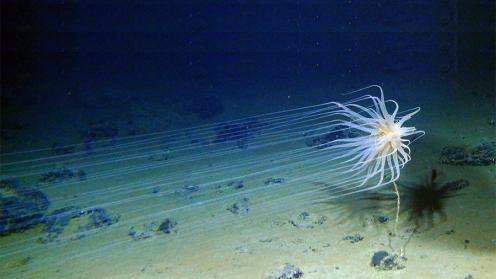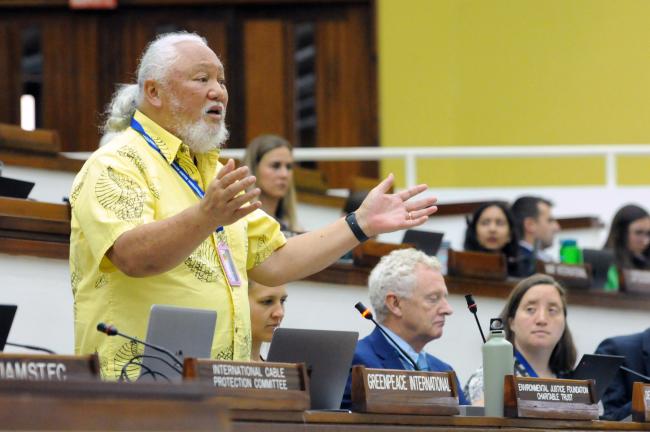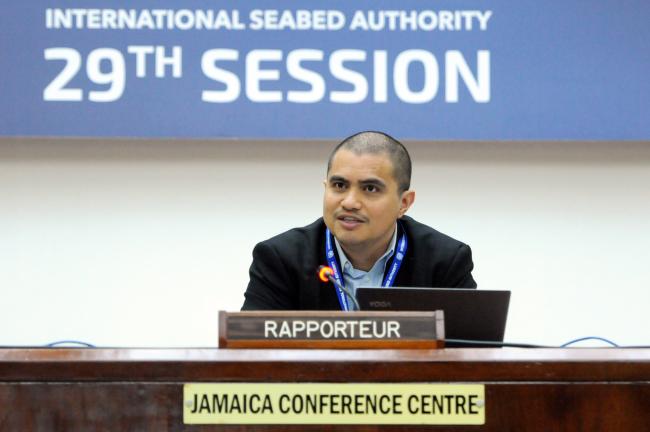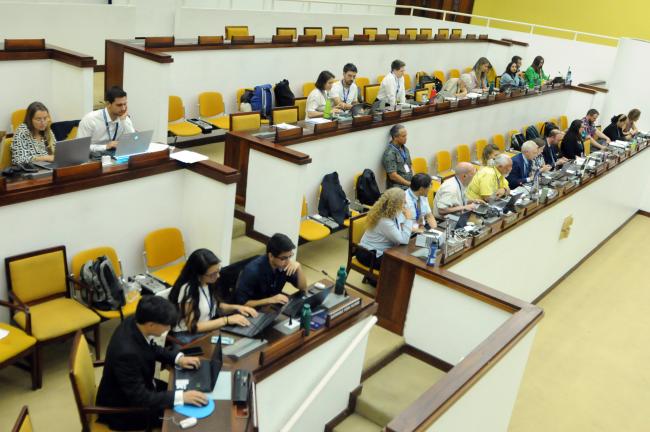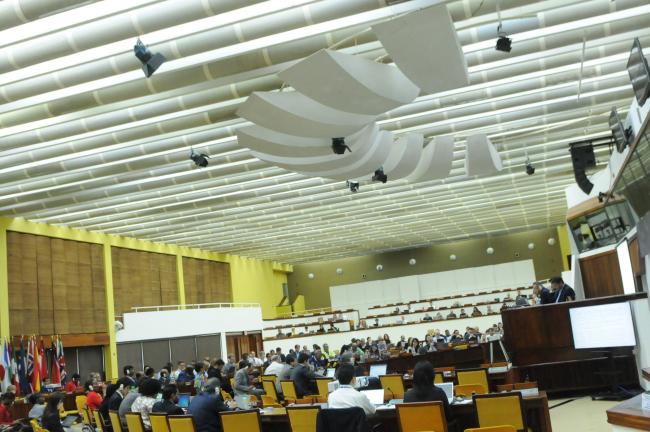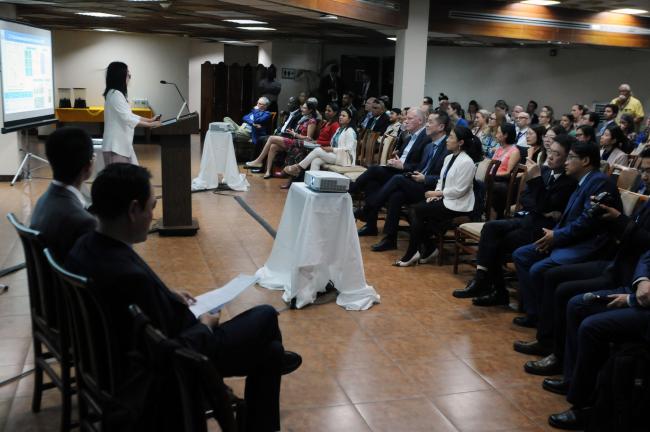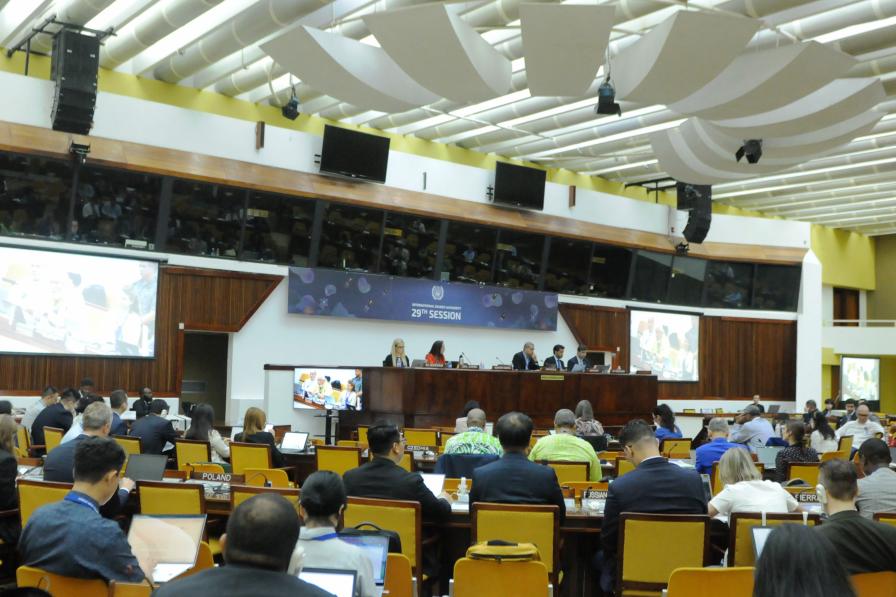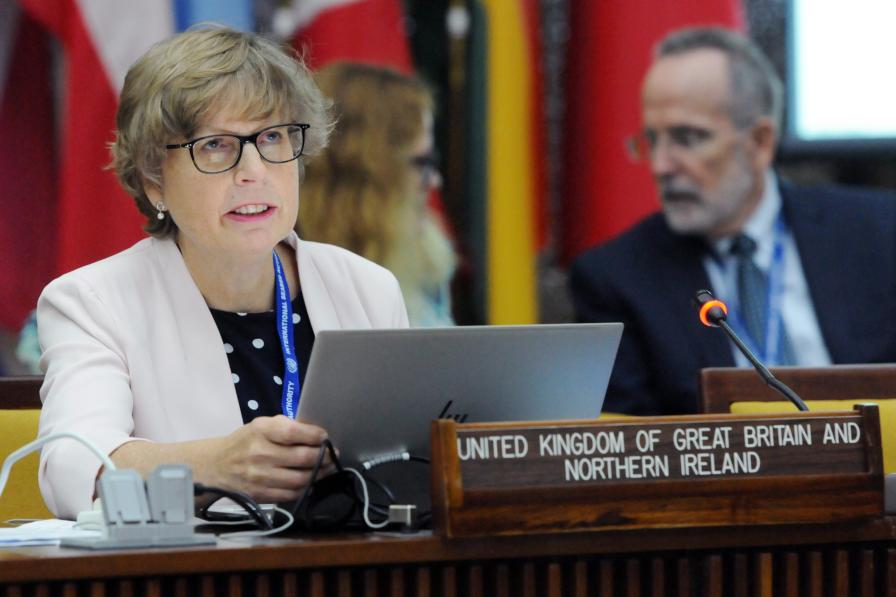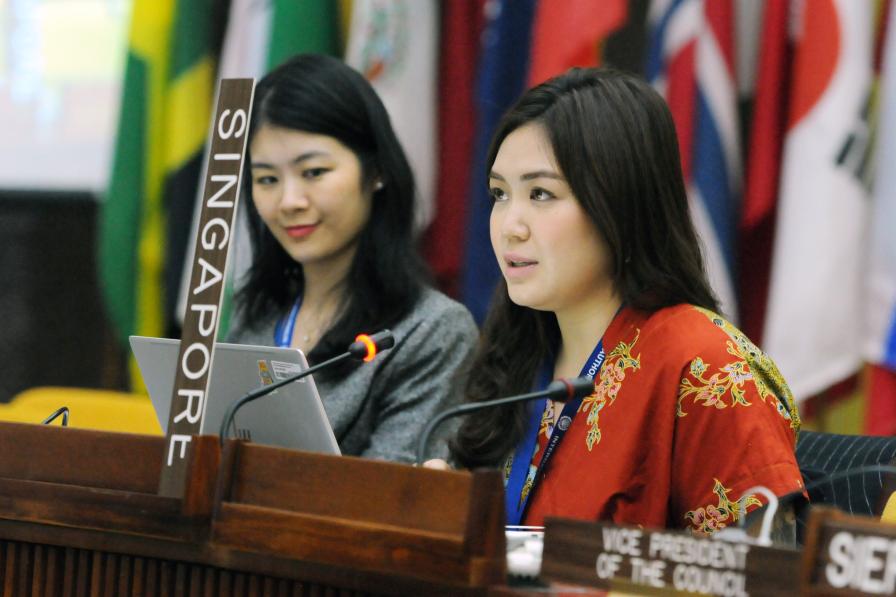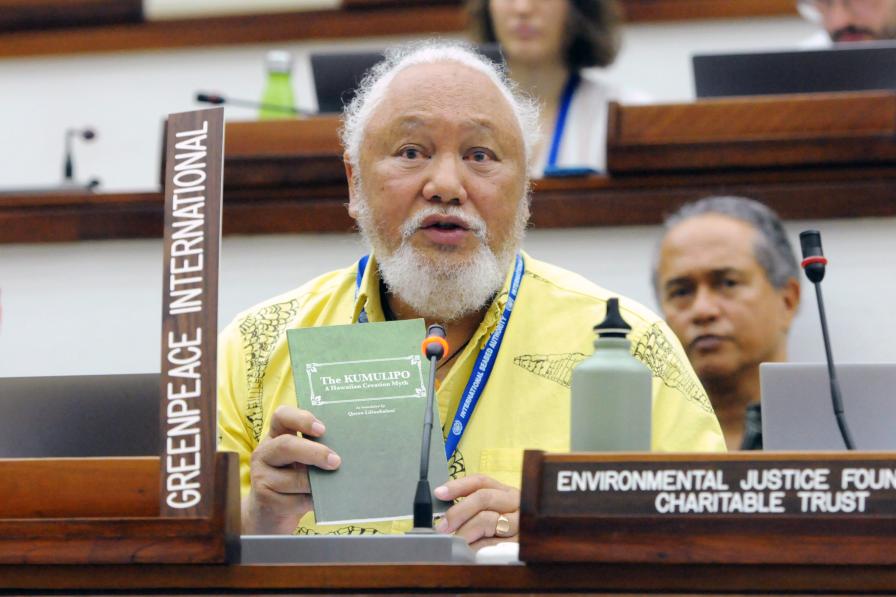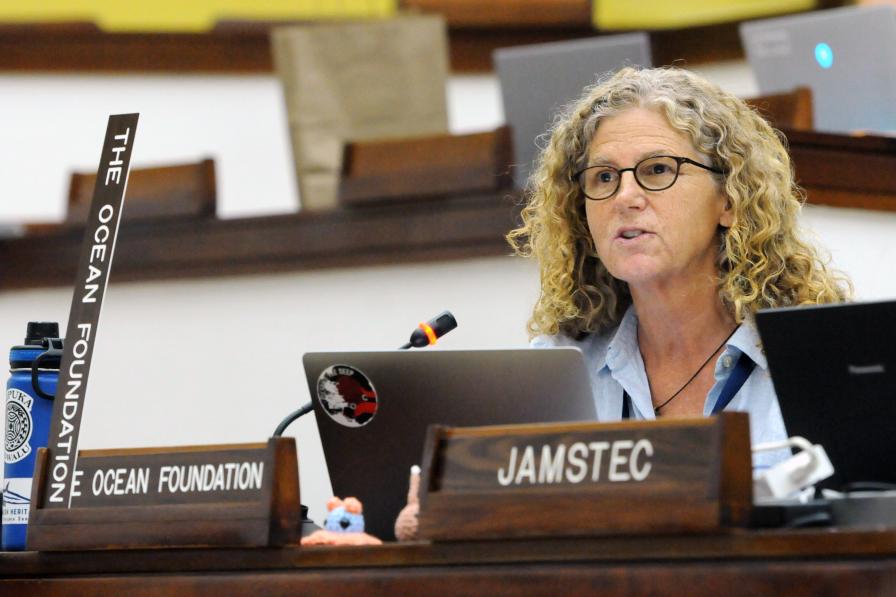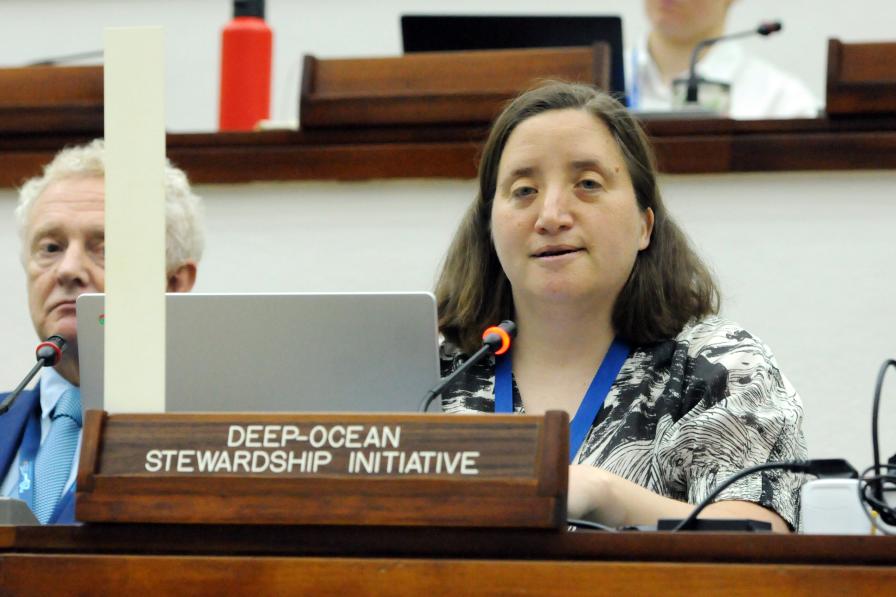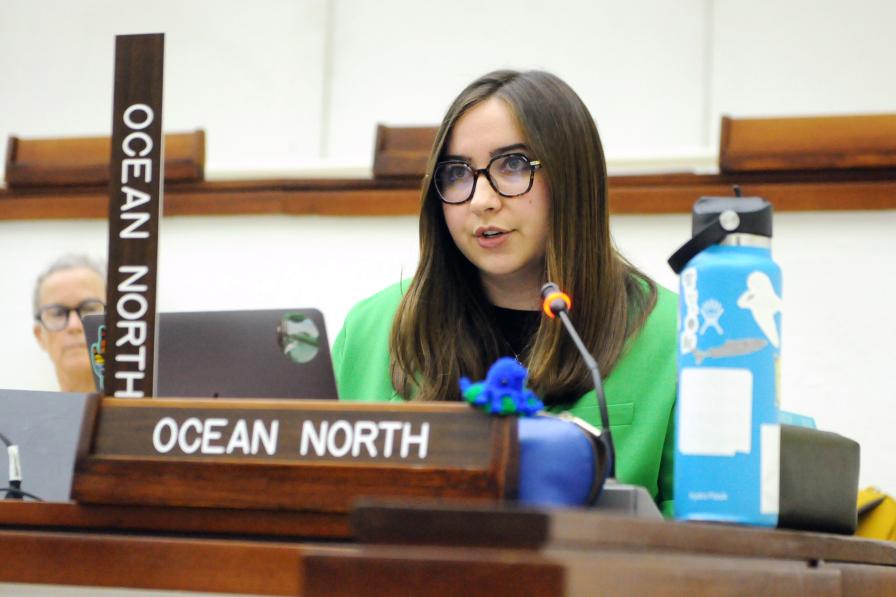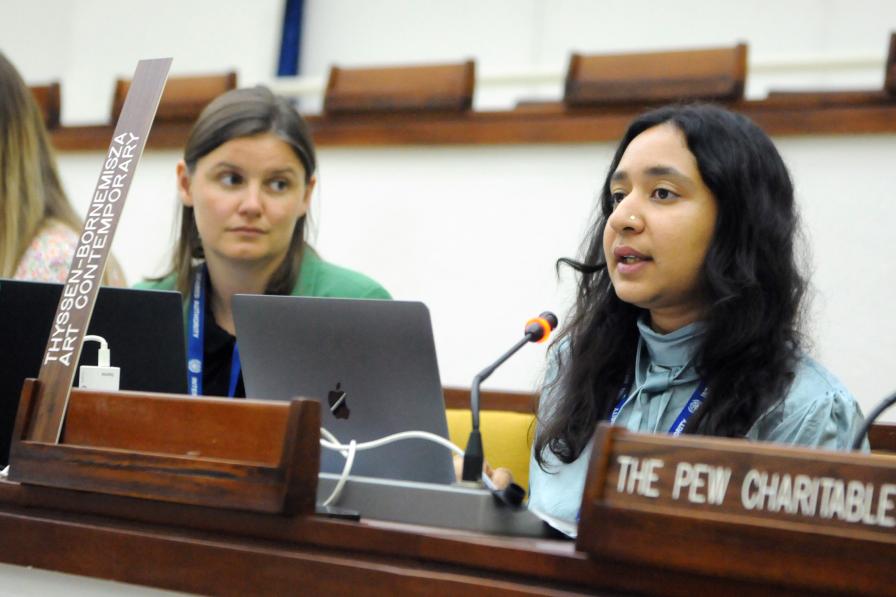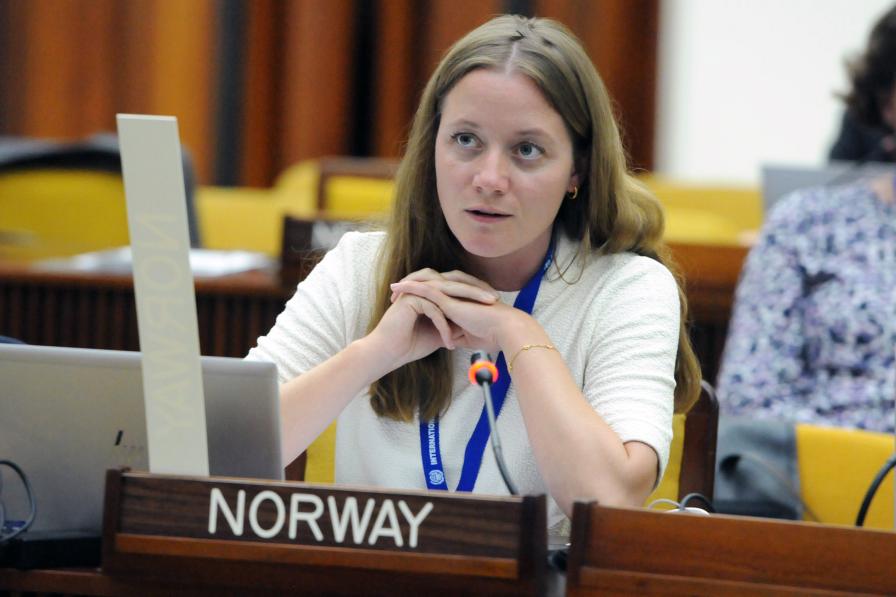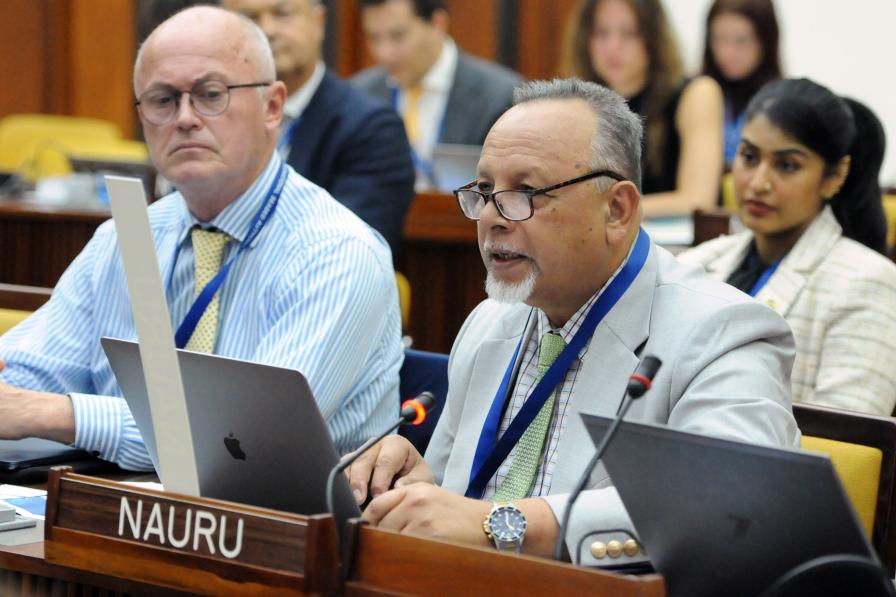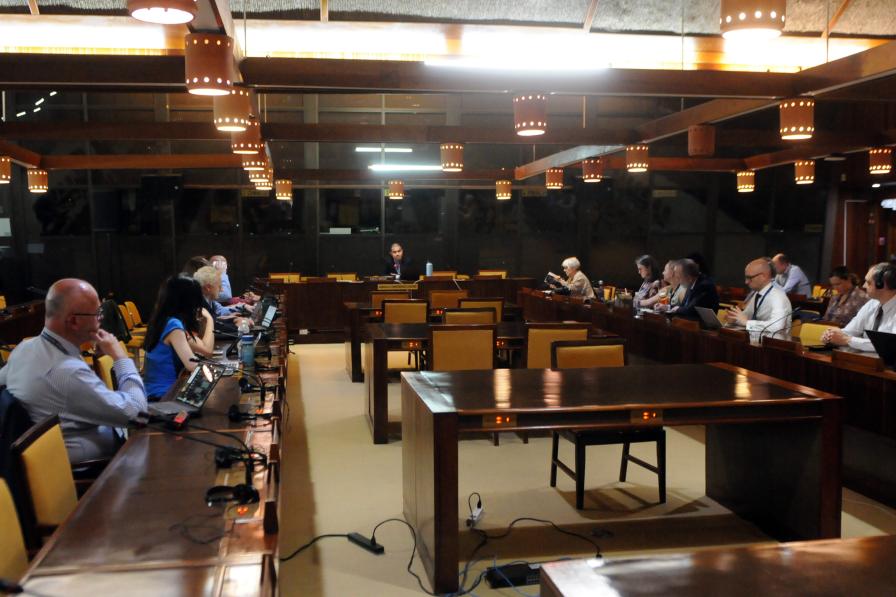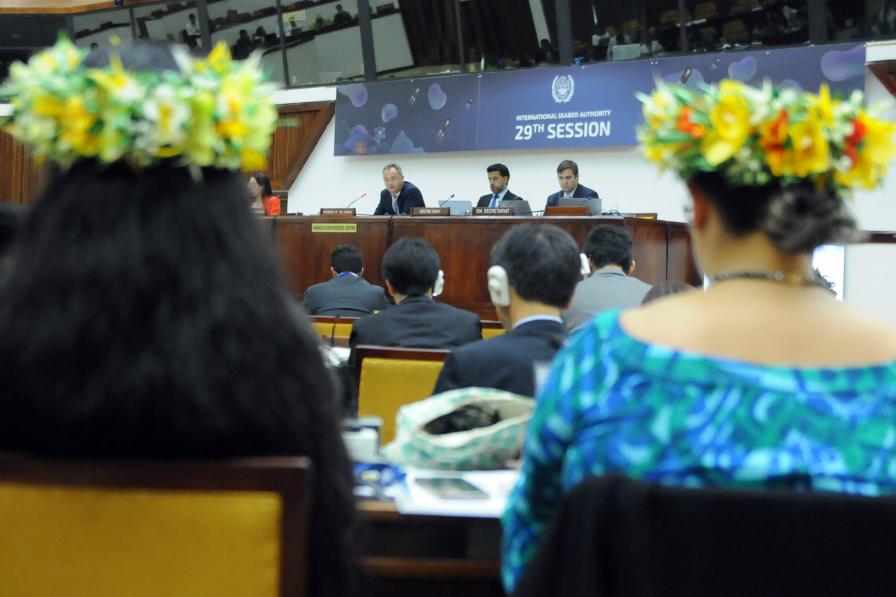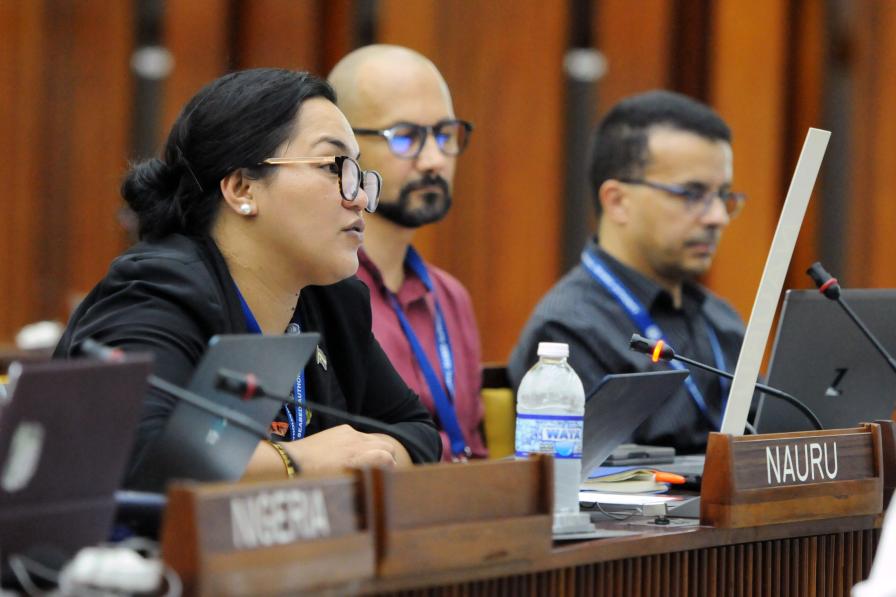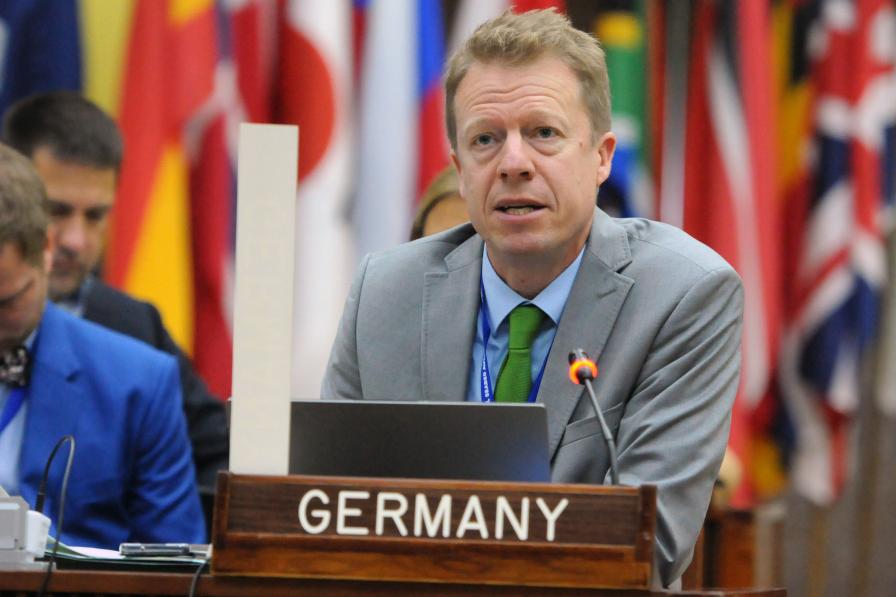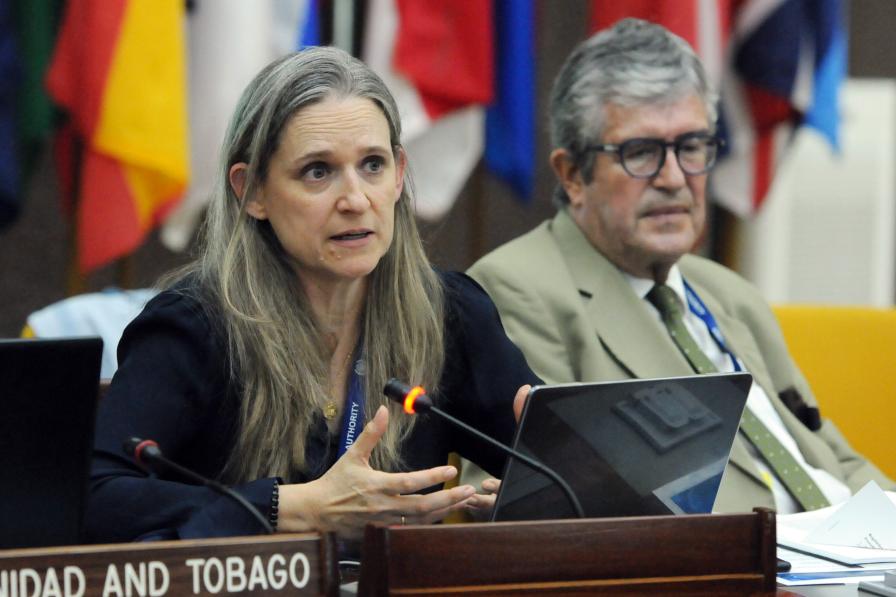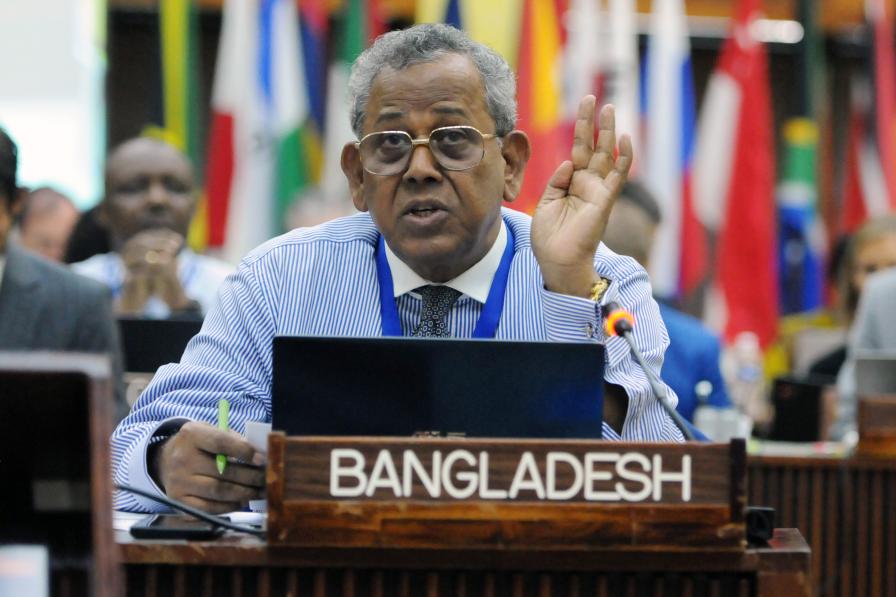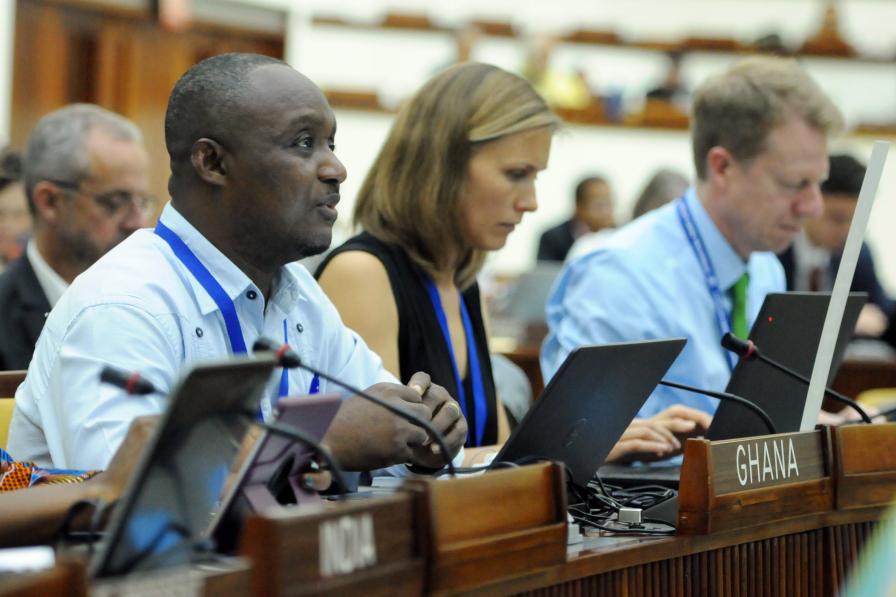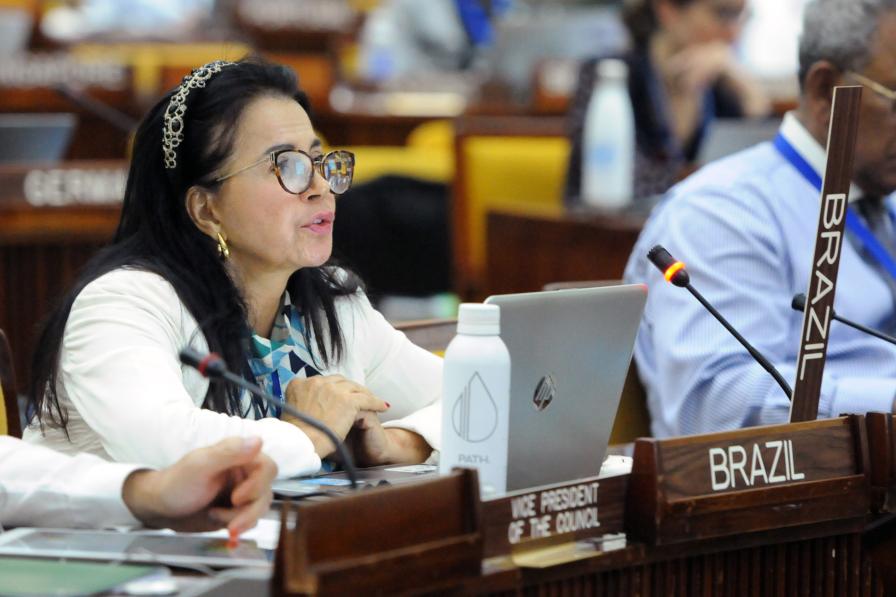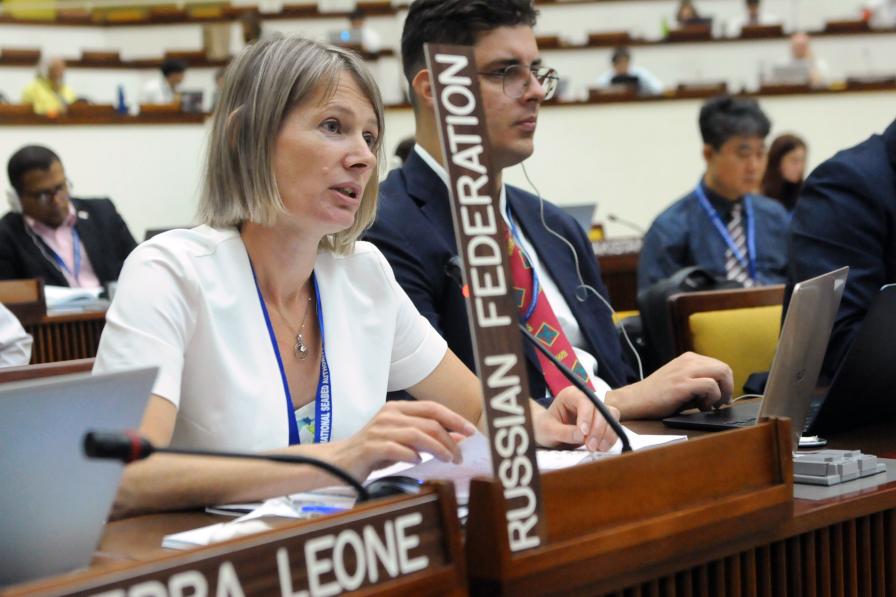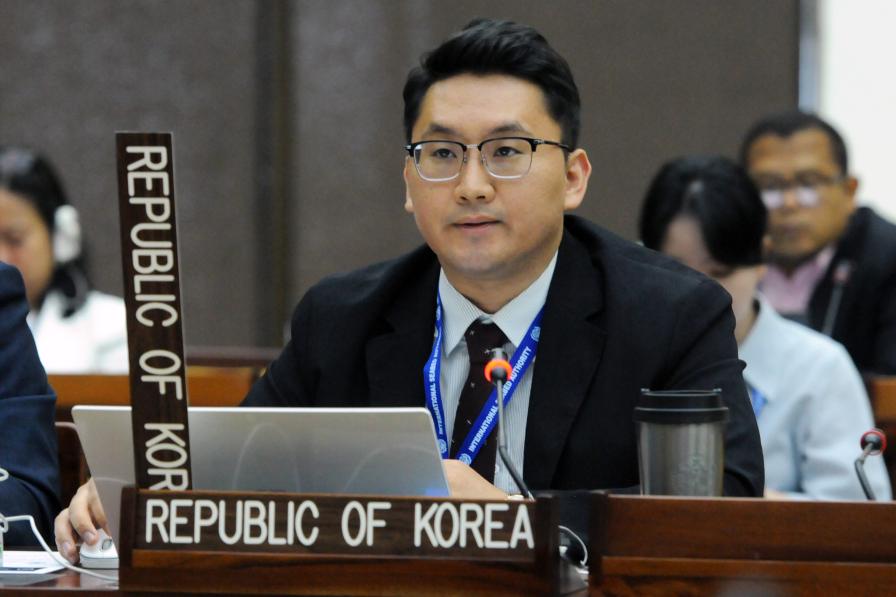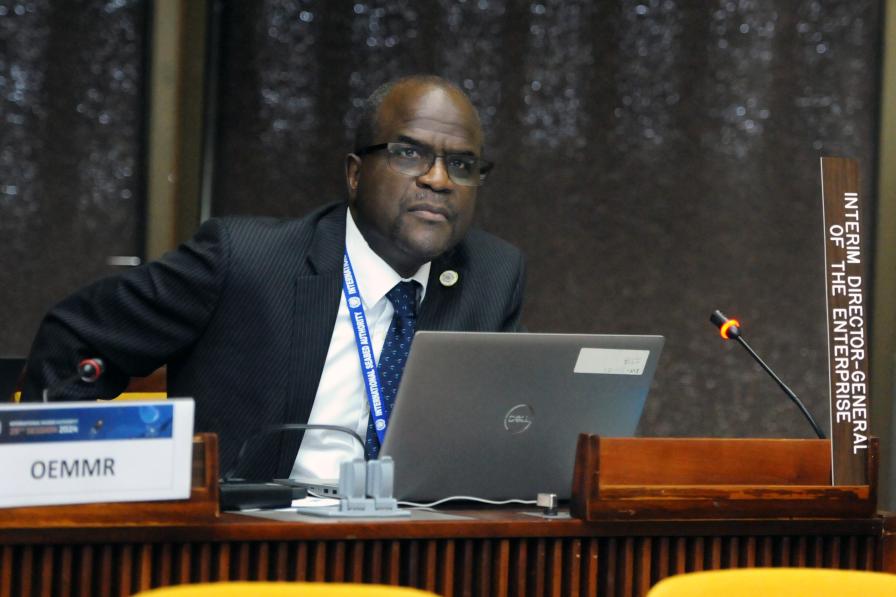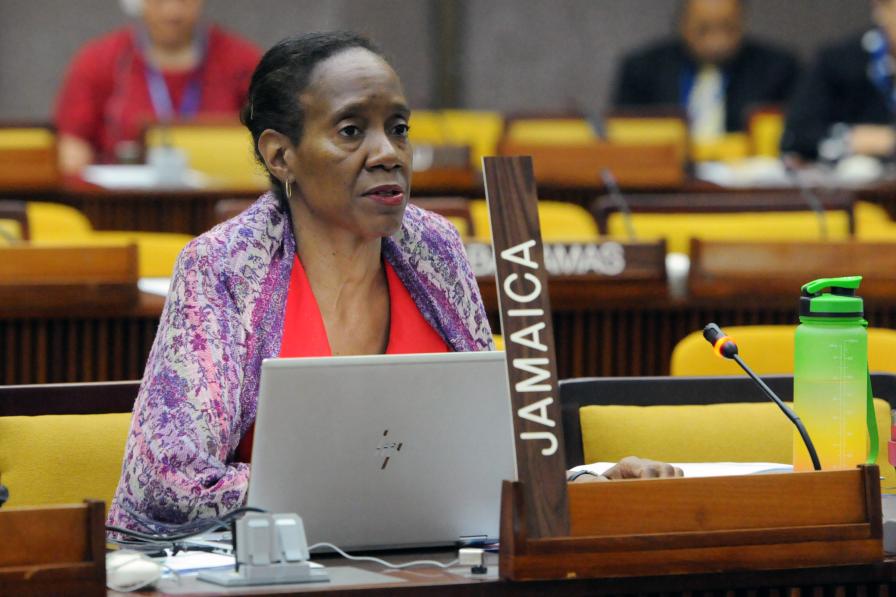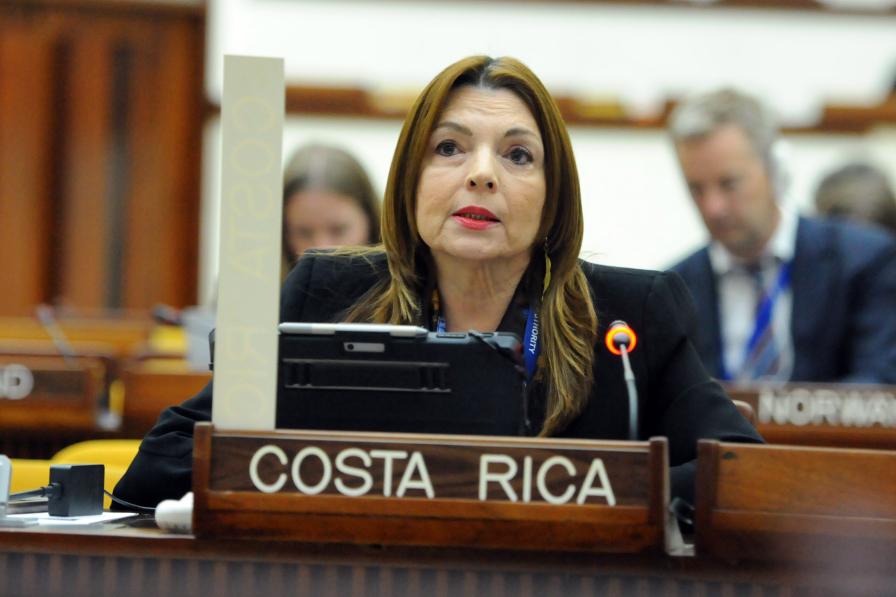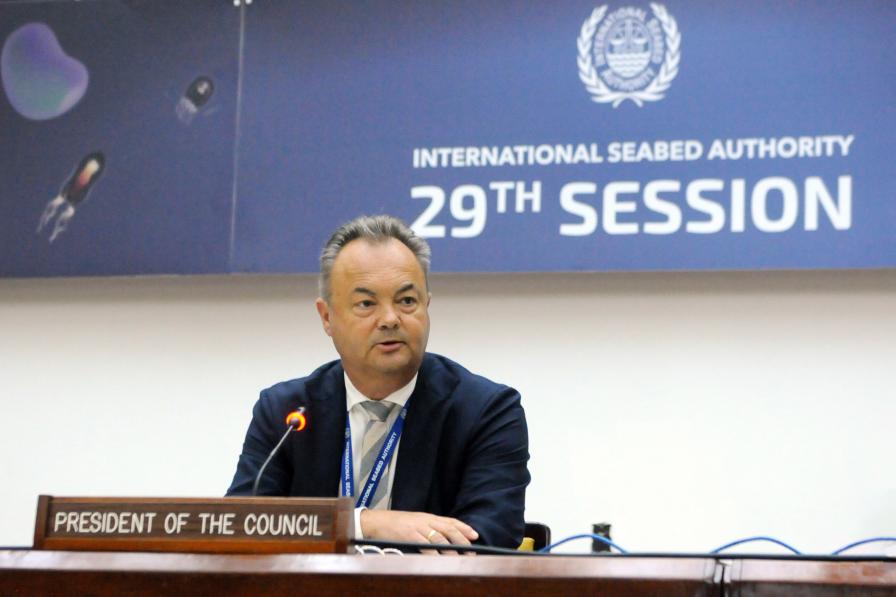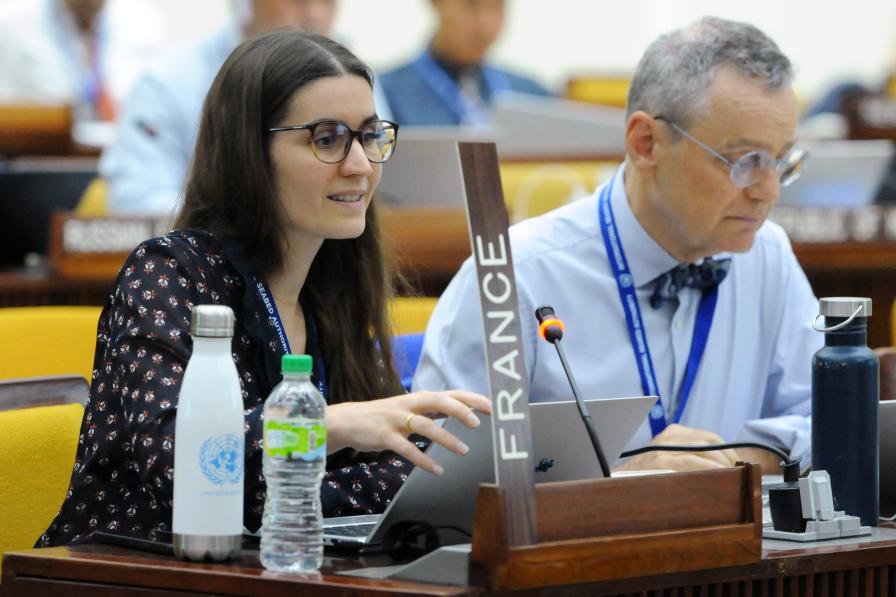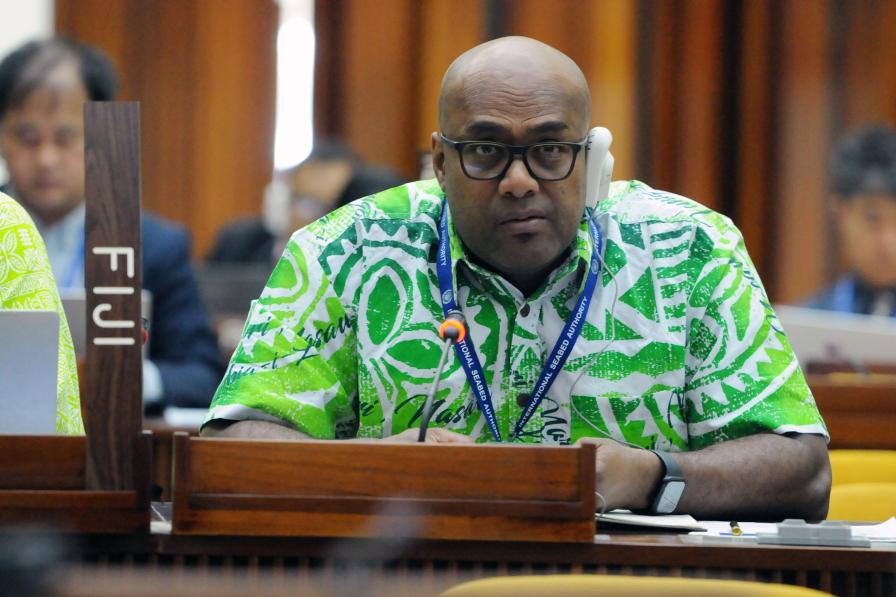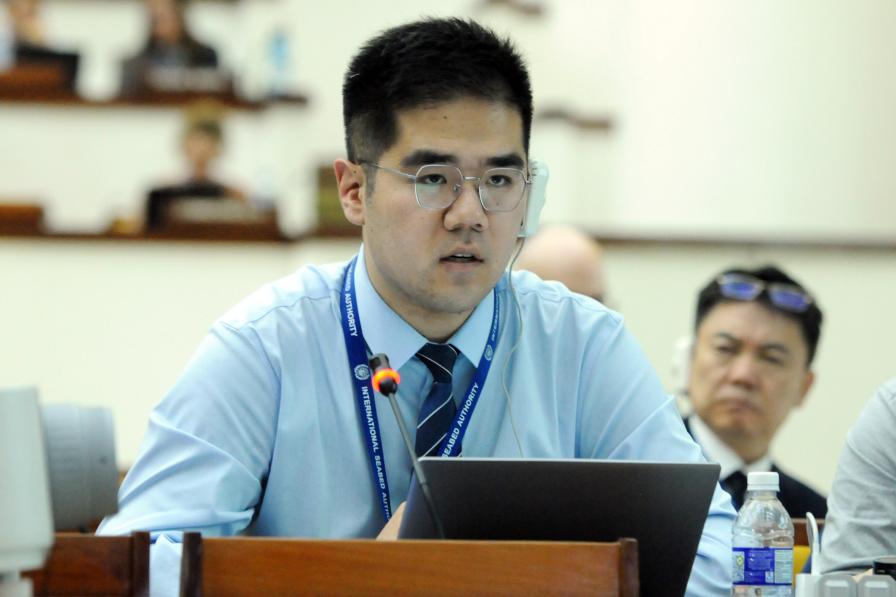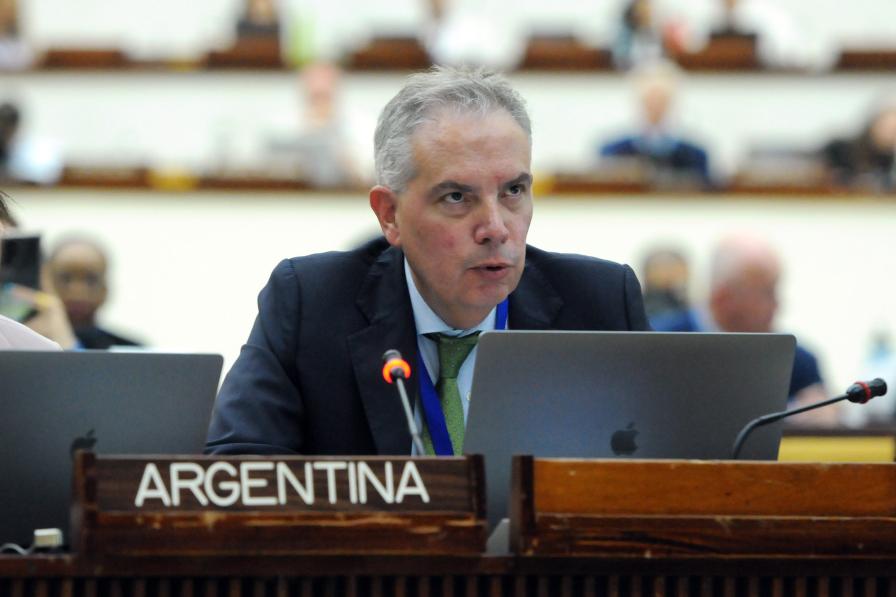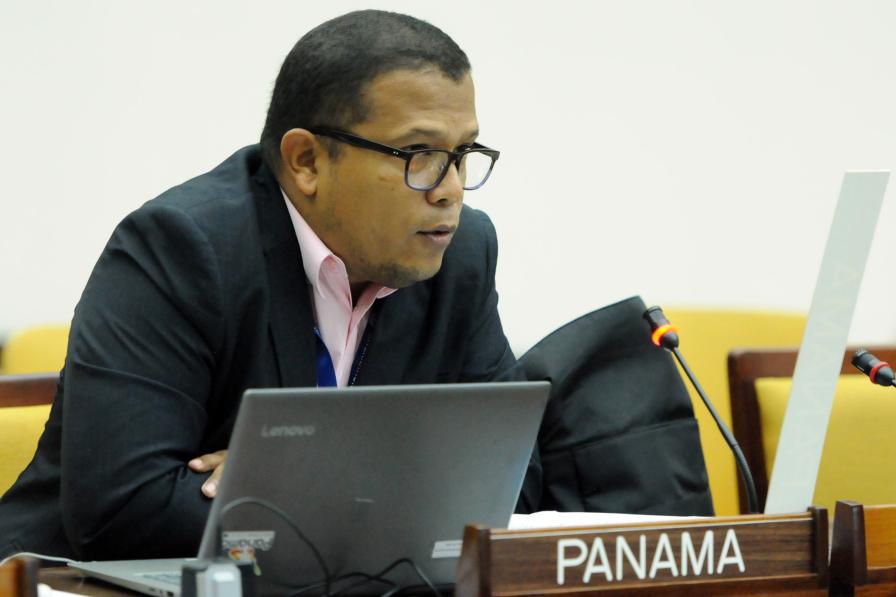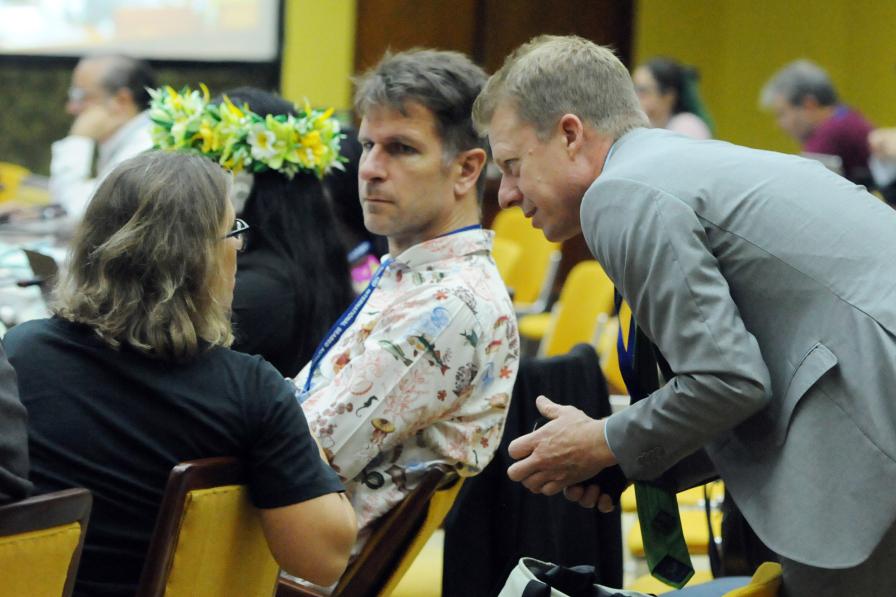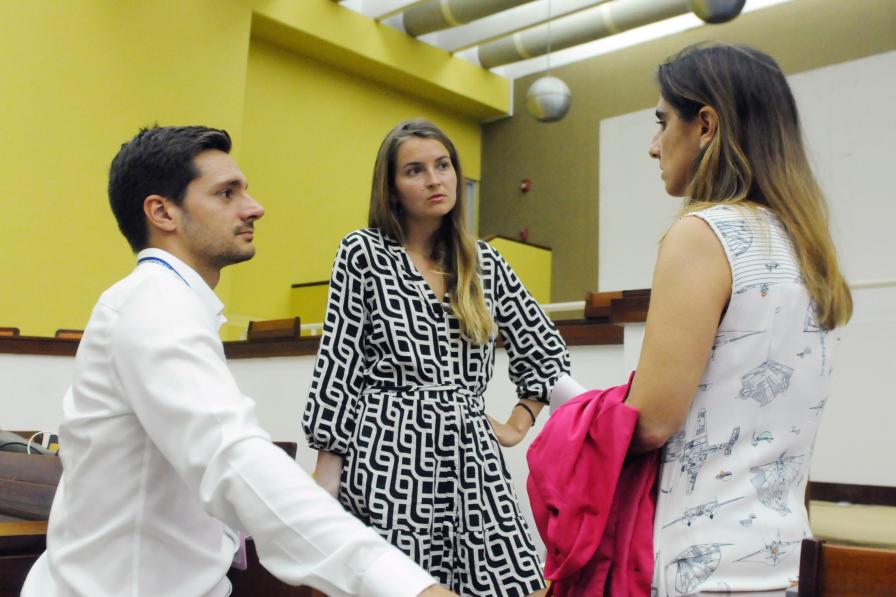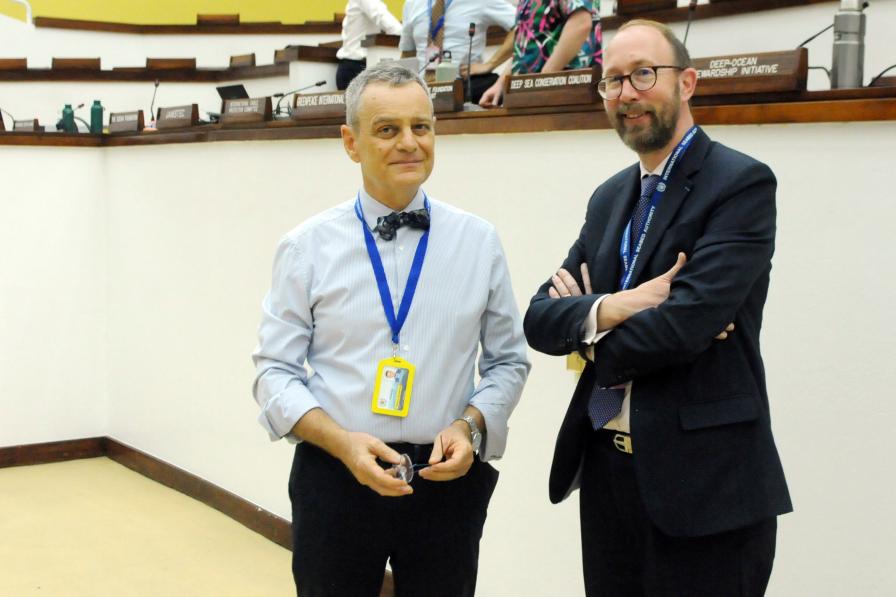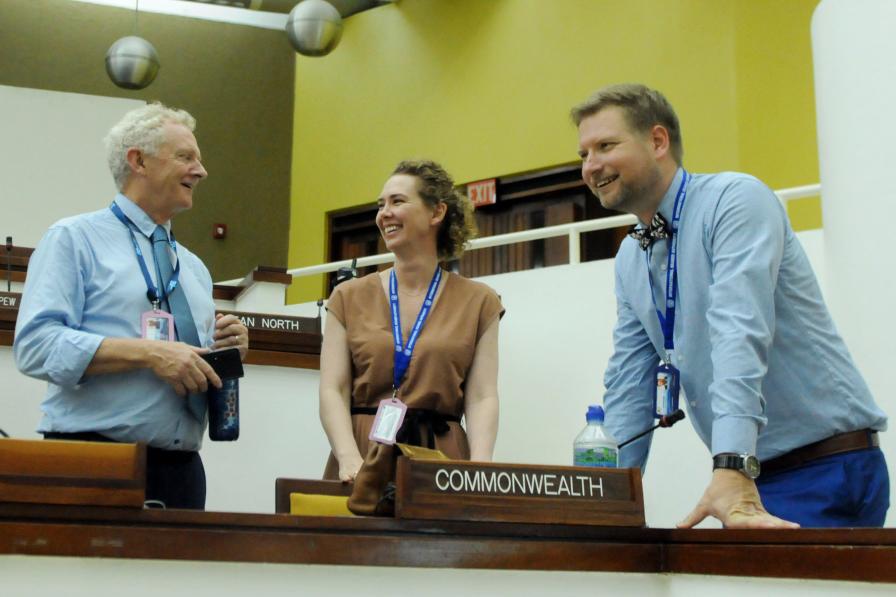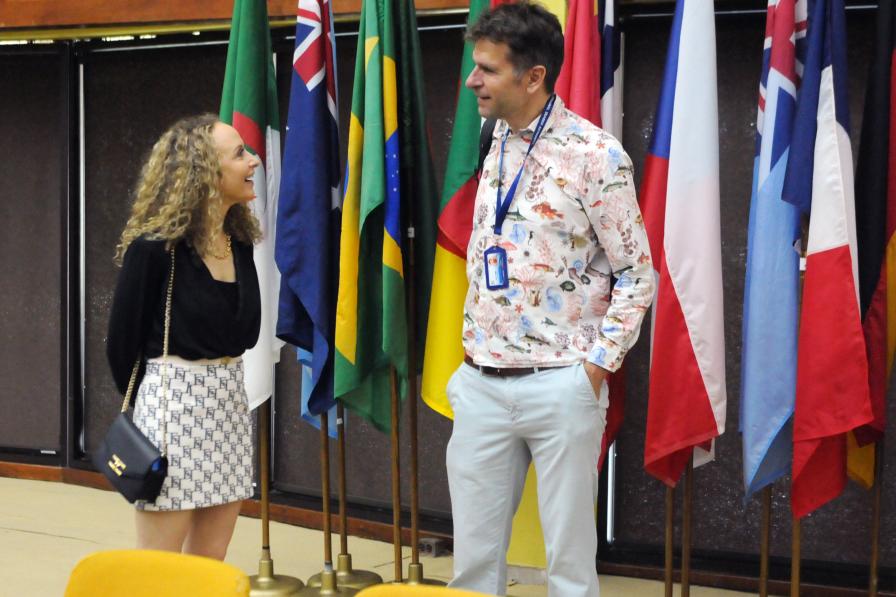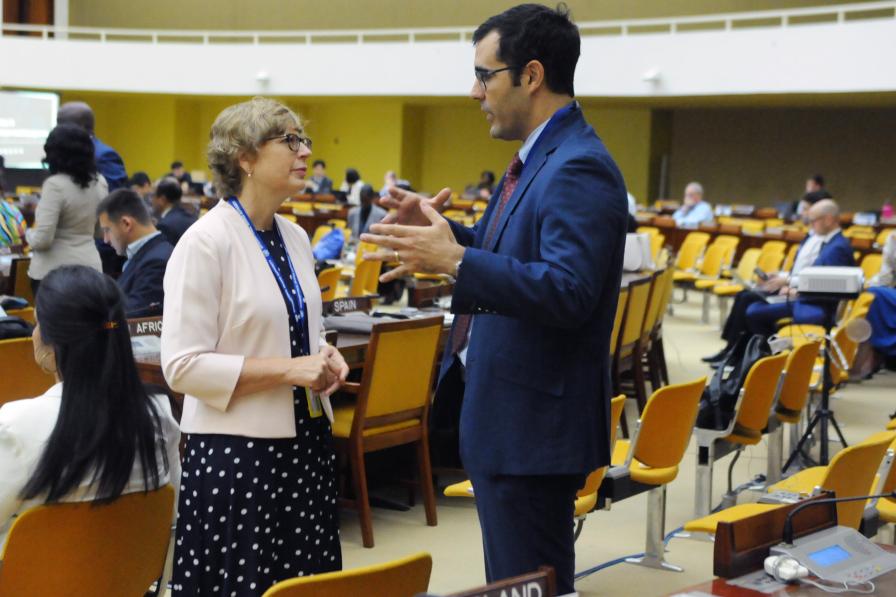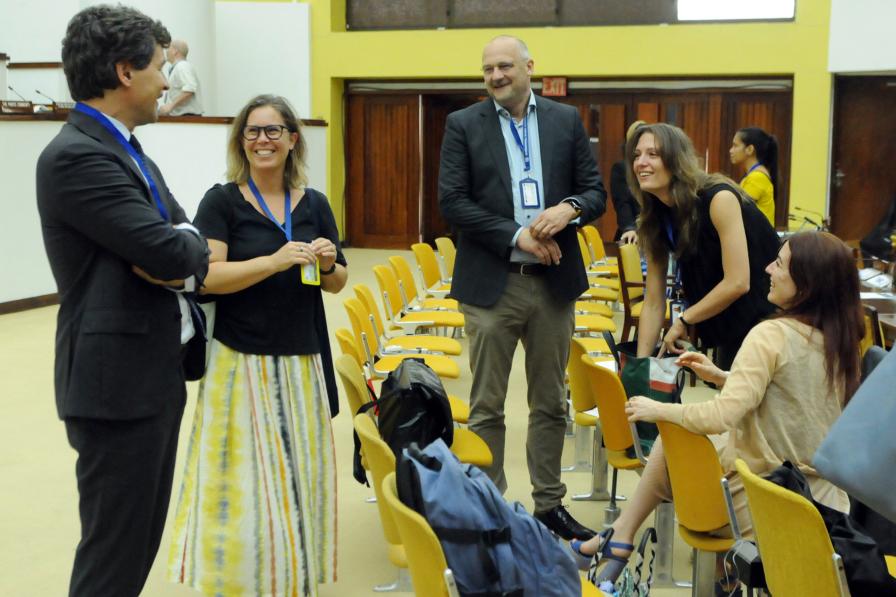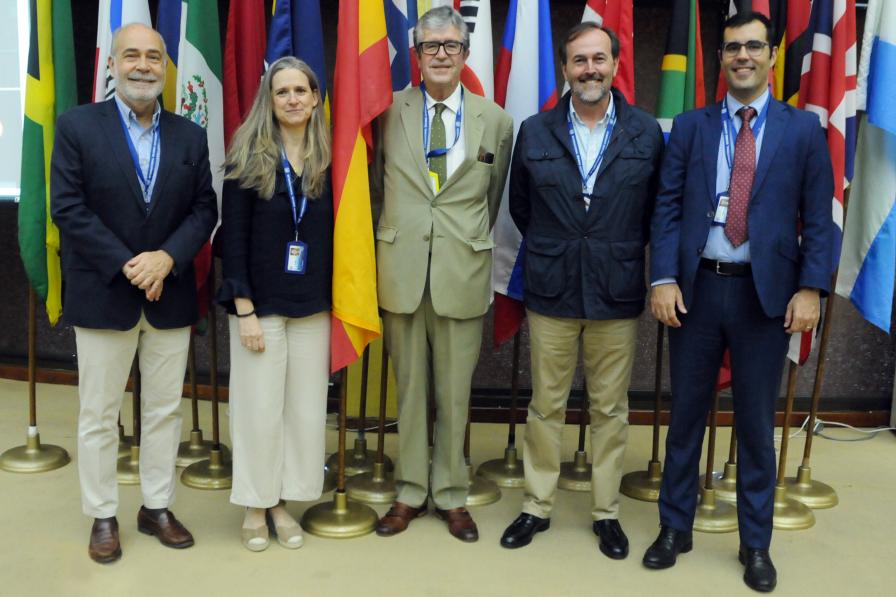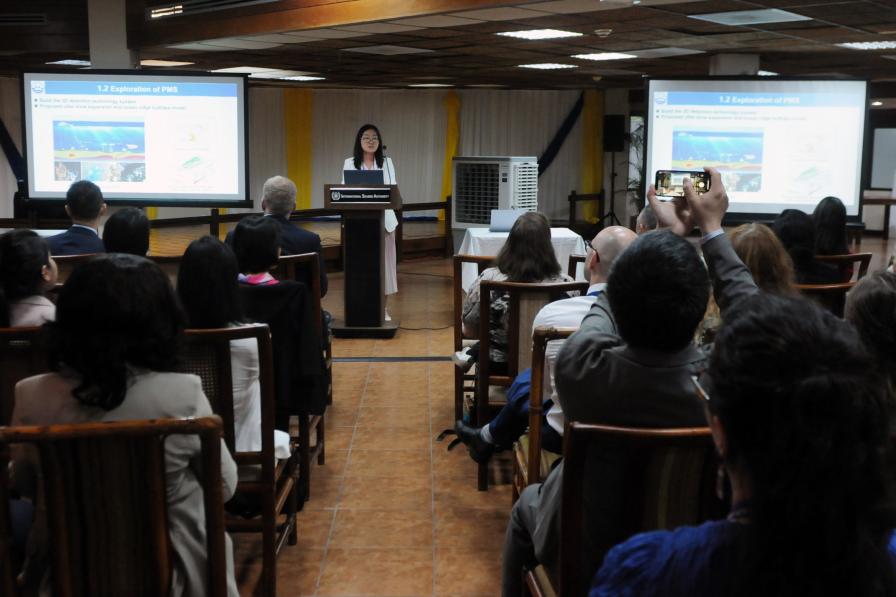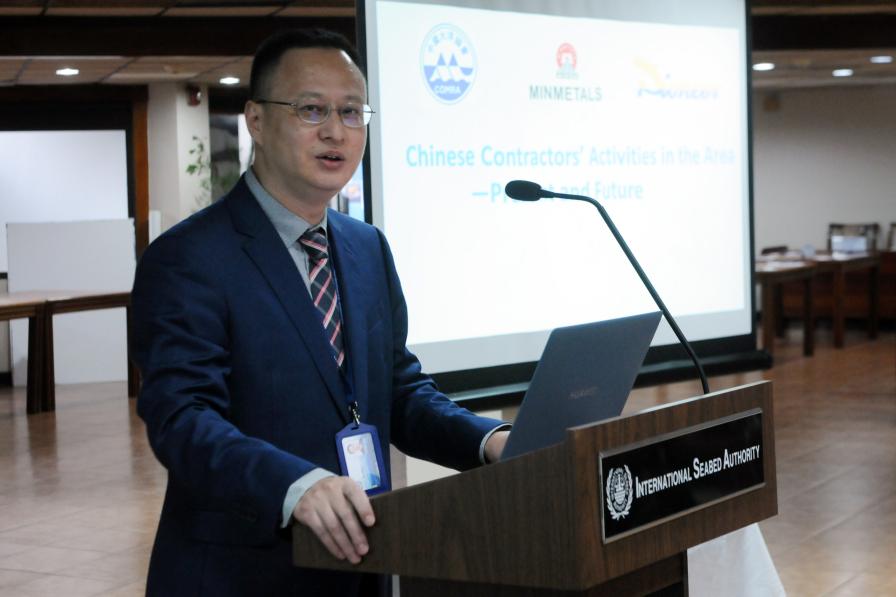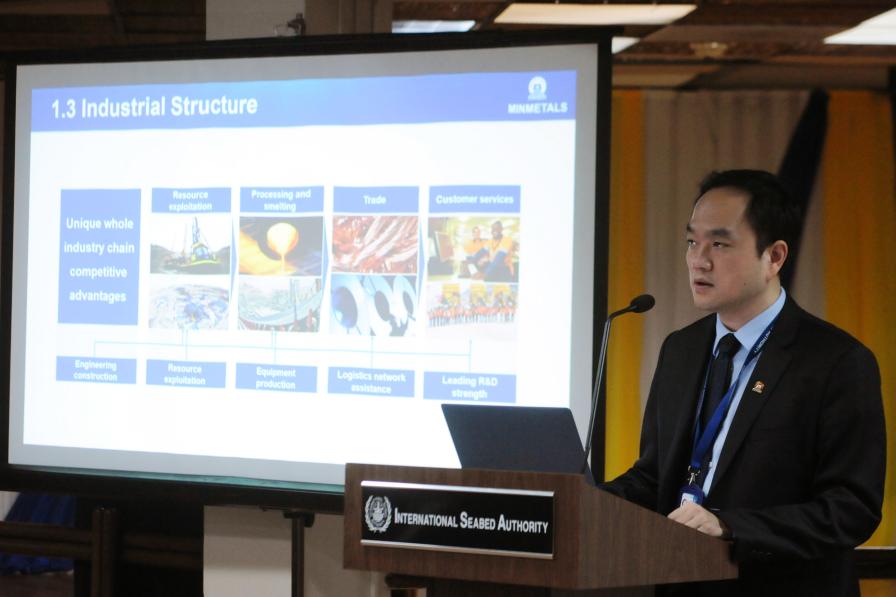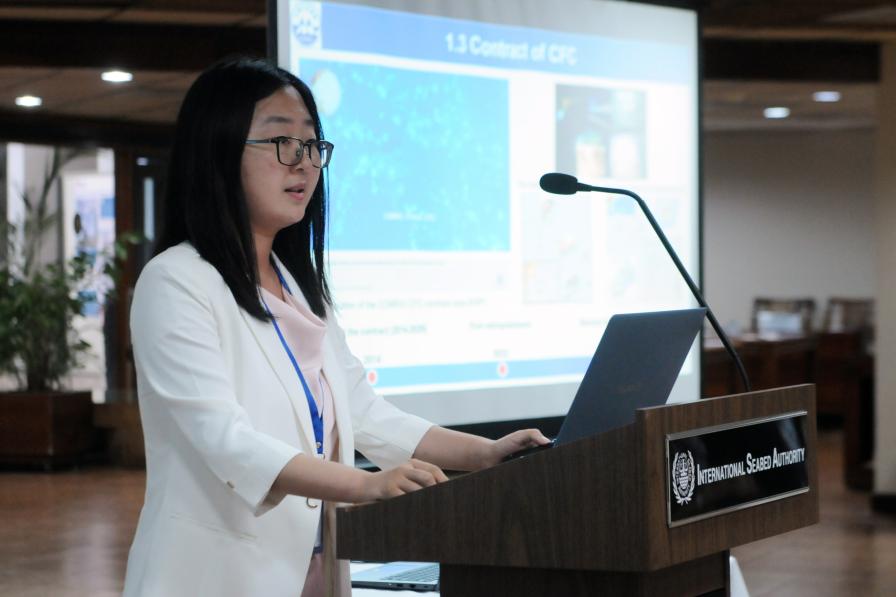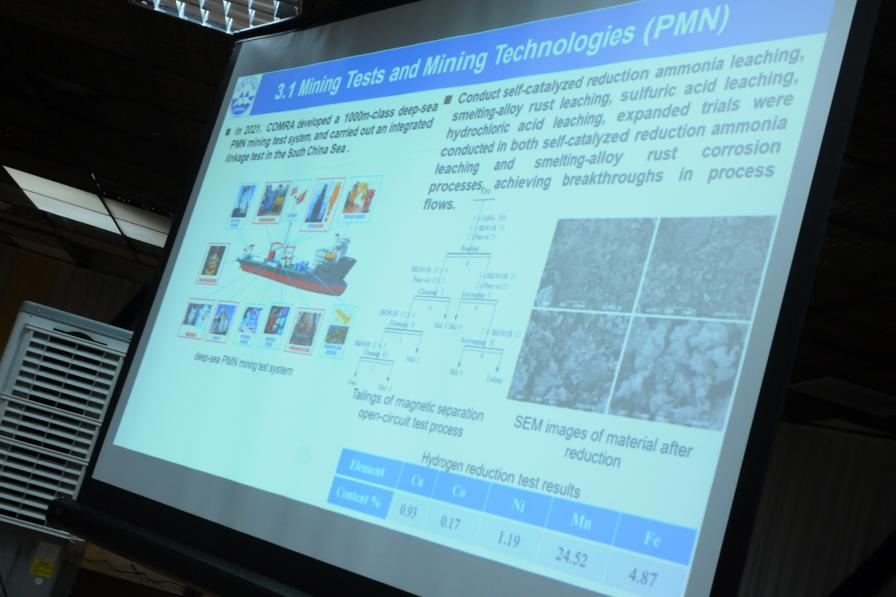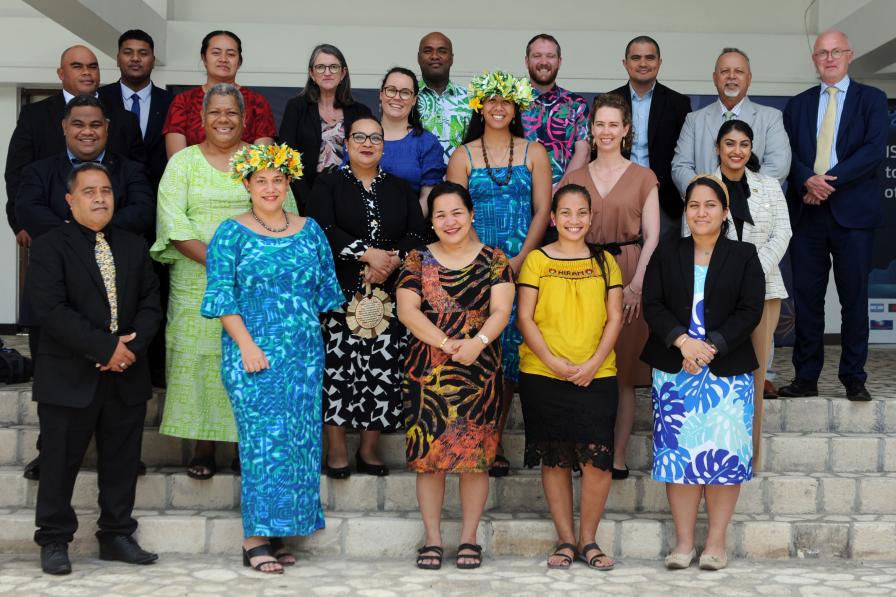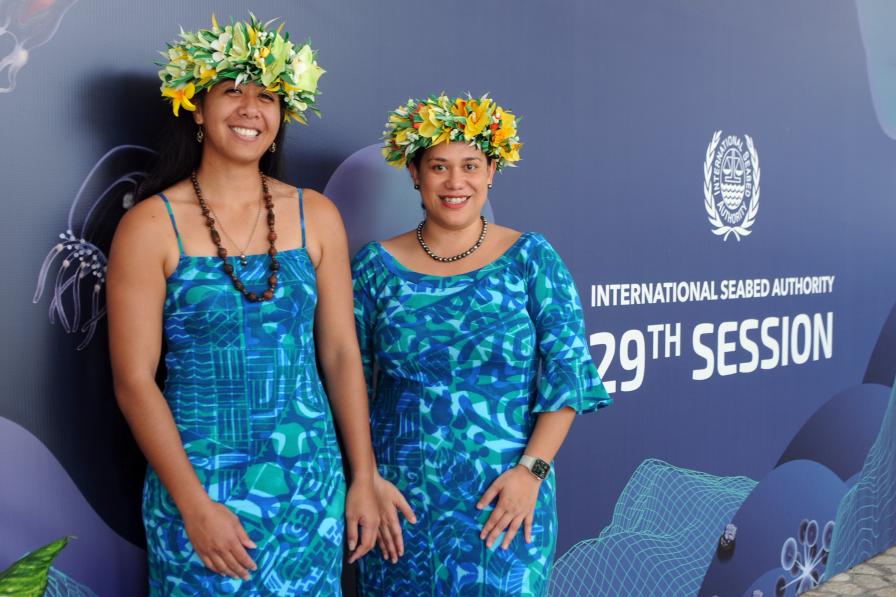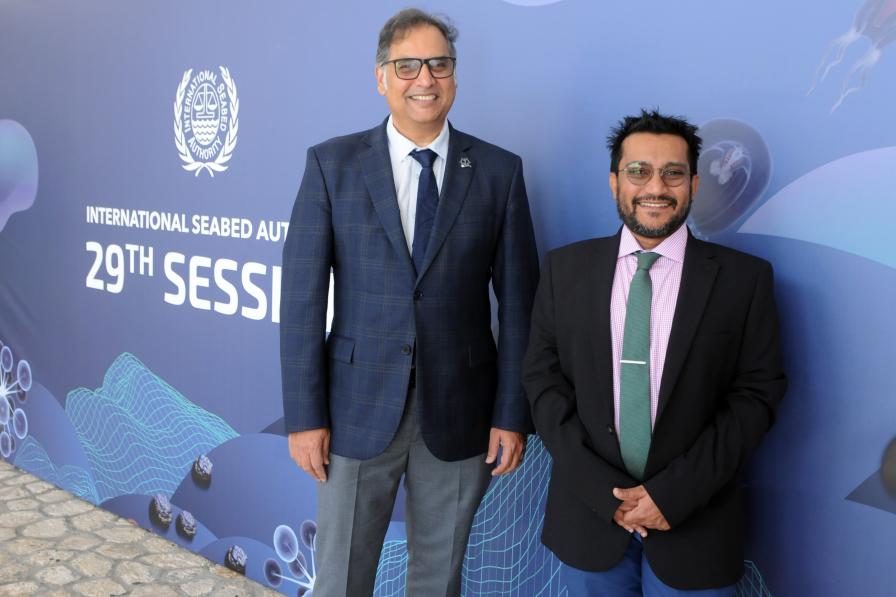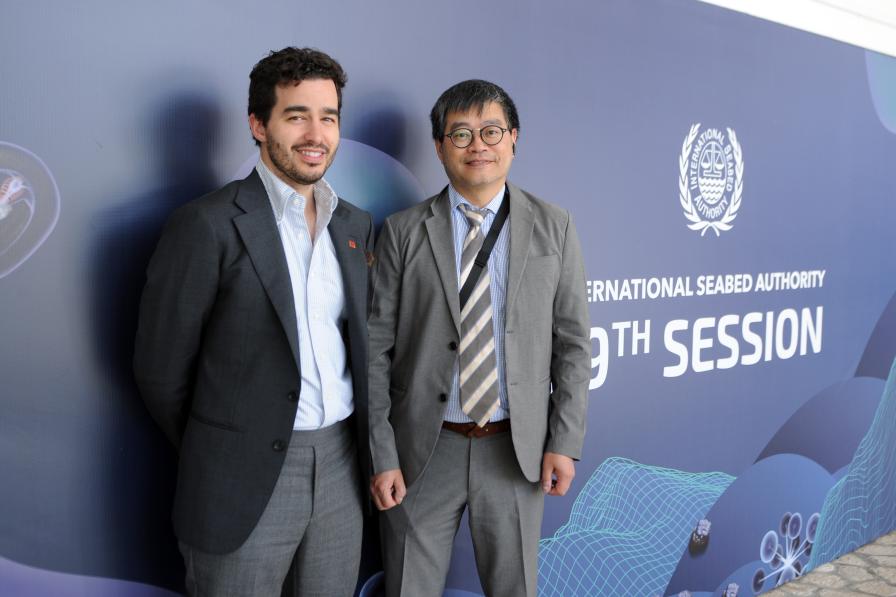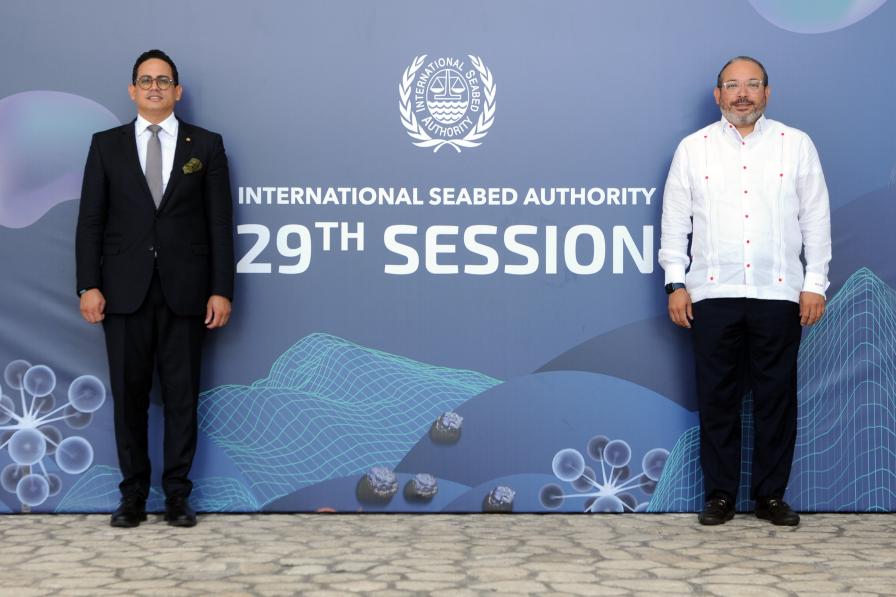As the first week of the second part of the 29th annual session of the International Seabed Authority (ISA) came to a close, Council President Olav Myklebust (Norway) noted the “busy Friday” Council members had before them prior to the much-awaited weekend.
The day began with a thematic discussion on underwater cultural heritage (UCH) facilitated by the Federated States of Micronesia. The discussion revolved around two guiding questions pertaining to the sufficiency of the material scope and procedural process of draft regulation 35 (human remains and objects and sites of an archaeological or historical nature) and how intangible UCH should be addressed throughout the exploitation regulations.
Some delegates voiced their agreement with the general approach provided by Spain in their non-paper on UCH submitted in July 2024. Delegates discussed the importance of intangible UCH, with some pointing to its inextricable links to tangible UCH, while others said that the draft regulation should focus solely on tangible objects to avoid ambiguity.
Many delegates highlighted the importance of the free, prior, and informed consent of Indigenous Peoples under Article 19 of the UN Declaration on the Rights of Indigenous Peoples (UNDRIP) and local communities before an application for a plan of work is submitted. Members expressed different views concerning the establishment of a relevant committee.
Some delegates and observers supported using the UN Educational, Scientific and Cultural Organization (UNESCO) definition on UCH, as well as intangible UCH, with a delegation contesting the latter, further opposing any reference to Indigenous Peoples’ collective rights.
Observers expressed concern about the impacts of deep-sea mining on Indigenous ways of life and cultural heritage. They stressed that the ISA needs to align itself with other international organizations to support the participation of Indigenous Peoples in all cross-cutting issues and the inclusion of Indigenous knowledge. They emphasized that intangible heritage is at the heart of all tangible products created from the ocean and added that the current use of the term tangible UCH is too narrow.
President Myklebust then invited delegates to continue their deliberations on the draft exploitation regulations. Discussions focused on:
- confidentiality of information (regulation 89);
- procedures to ensure confidentiality (regulation 90);
- information to be submitted upon expiration (or termination) of an exploitation contract (regulation 91);
- the seabed mining register (regulation 92);
- publication of environmental data and information (regulation 92bis);
- notice and general procedures (regulation 93);
- stakeholder consultation (regulation 93 bis);
- consultations with coastal states (regulation 93 ter); and
- adoption of standards (regulation 94).
On confidentiality of information, some delegates supported the establishment of a data committee, while others opined that the Legal and Technical Commission (LTC) could conduct the relevant tasks. Some members emphasized that confidential information on an exploration contract should not remain confidential during exploitation.
Several members noted environmental data should be accessible to the public and all stakeholders. A delegate urged for a restrictive approach, identifying only the information that should remain confidential.
On procedures to ensure confidentiality, discussions focused on language to cover cases where a court order requires information disclosure, with some noting that the contractor’s prior consent would not be required in such cases.
Many delegates emphasized that procedures governing the handling of confidential information should be established by the Council rather than the Secretary-General. Some suggested detailing the enforcement mechanism and penalties for breaches of confidentiality and including language on international best practices and standards on confidentiality.
On stakeholder consultation, several members stressed that the consultations should be for all stakeholders and not only those “potentially directly affected.” A member drew attention to the non-discriminatory principle contained in the UN Convention on the Law of the Sea (UNCLOS). Another delegate pointed to the links with the Aarhus and Escazú Conventions.
On consultations with coastal states, Portugal reported on the work of the intersessional group, outlining the group’s meetings, topics addressed, and progress. She concluded that further discussion is required and suggested continuing intersessional work.
Many delegates agreed this should be a standalone regulation, despite the duty to consult contained in other regulations, in line with UNCLOS Article 142 (rights and legitimate interests of coastal states). They debated the process by which potentially affected coastal states would be identified, with many supporting the notion that states should be able to self-identify as potentially affected, rather than leaving that decision to the ISA or contractors. A delegate suggested that a list of criteria could be provided to support self-identification. Delegates also noted that this draft regulation should align with Article 32 of the UN Agreement on Marine Biodiversity of Areas Beyond National Jurisdiction (BBNJ Agreement) on public notification and consultation.
In the evening, the China Ocean Mineral Resources Research and Development Association (COMRA) organized a side event titled “Chinese contractors in international seabed activities: present and future.”
To receive free coverage of global environmental events delivered to your inbox, subscribe to the ENB Update newsletter.
All ENB photos are free to use with attribution. For the 2nd Part of the 29th Annual Session of the ISA, please use: Photo by IISD/ENB - Diego Noguera
